39 who signs bills to become laws
Bills Introduced that have Become Law | Congressman Scott ... Bills Introduced that have Become Law. H.R. 586, STANDUP Act: Scott introduced the STANDUP Act during the 116th Congress with Rep. Gus Bilirakis (R-FL) in 2019 and re-introduced again in 2021 for the 117th Congress. The bipartisan, bicameral measure requires states, schools, and Tribes to teach students, teachers, and administrators to identify ... PDF How a Bill Becomes Law - Indiana Once the governor receives a bill, he can sign it, veto it, or do nothing. If he signs it, the bill becomes law. If he does nothing, the bill becomes law without his signature. If he vetoes the bill, and the Senate and House of Representatives do nothing, the bill "dies."
Who signs bills to become laws? Flashcards and Study Sets ... Learn Who signs bills to become laws? with free interactive flashcards. Choose from 500 different sets of Who signs bills to become laws? flashcards on Quizlet.

Who signs bills to become laws
How a Bill Becomes a Law - Minnesota Legislature Once the governor has the bill, he or she may: sign it, and the bill becomes law; veto it within three days; or allow it to become law by not signing it. During session, the House and Senate can override a governor's veto. This requires a two-thirds vote in the House (90 votes) and Senate (45 votes). Who signs a bill into law in the federal government ... Who signs a bill into law in the federal government? Congress creates and passes bills. The president then may sign those bills into law. Federal courts may review the laws to see if they agree with the Constitution. Who signs the bills passed by Australian parliament before they become law? How Laws Are Made | USAGov How a bill becomes law when it originates in the Senate. Active legislation in the Senate. Federal and State Laws, Regulations, and Related Court Decisions. Federal laws apply to people living in the United States and its territories. Congress creates and passes bills. The president then may sign those bills into law.
Who signs bills to become laws. How Bills Become Laws Flashcards - Quizlet How does a bill become a law? It must pass through both the house of representatives and the senate and be signed by the president. Where do most bills originate? It can be introduced in either of the houses of Congress. What do Committees do? When a bill is introduced to it, the bill gets a number and is assigned to a standing committee. 19 Who signs bills to become laws Choose one a The Chief ... 19. Who signs bills to become laws? Choose one: a. The Chief Justice of the Supreme Court. b. The Vice President. c. The Secretary of State. d. Governor Cooper Signs Budget and Two Bills into Law | NC ... Today, Governor Roy Cooper signed the following bills into law: Senate Bill 105: 2021 Appropriations Act. . . Governor Cooper made the following statement on SB 105: "This budget moves North Carolina forward in important ways. Funding for high speed internet, our universities and community colleges, clean air and drinking water and desperately ... Who signs bills to become laws a. The Chief Justice of the ... Who signs bills to become laws a. The Chief Justice of the Supreme Court. b. The Vice President. c. The Secret… Get the answers you need, now! s9190805 s9190805 03/16/2021 Social Studies High School answered Who signs bills to become laws a. The Chief Justice of the Supreme Court. b. The Vice President.
Who signs bills to become laws - e-answersolutions.com Congress creates and passes bills. The president then may sign those bills into law. Answer from: eric271828 1) Bill of Rights 2) We the People 3) The House of Reps and the Senate 4) 100 5) parliament 6) Declared our independence from Great Britain 7) A change to the constitution 8) 6 years 9) 2 years 10) 4 years 11) November Who signs bills into law? - Answers Thus Congress passes bills, but the President signs them into law. The bill can become law without the President's signature, if he/she vetoes the bill and Congress overrides it by 2/3 vote of ... 33. Who signs bills to become laws? - Civics Way When the Senate or House begins to debate the proposal, it is called a "bill." After debate in both houses of Congress, if a majority of both the Senate and House vote to pass the bill, it goes to the president. If the president wants the bill to become law, he signs it. If the president does not want the bill to become law, he vetoes it. Constitutional Topic: How a Bill Becomes a Law - The U.S ... First, a bill must pass both houses of Congress by a majority vote. After it has passed out of Congress, it is sent along to the President. If the President signs the bill, it becomes law. The President might not sign the bill, however. If he specifically rejects the bill, called a veto, the bill returns to Congress.
Who signs bills to become laws in the US? - Quora Answer (1 of 5): THE PRESIDENT!!! The House of Representatives introduces an idea, debates it in committee, and, upon passing, goes to the whole House, where, if it passes, it is sent to the Senate. There, it is sent to the appropriate Senate Committee, debated, and IF passed, goes to the floor... 33. Who signs bills to become laws? - American Tribute When the Senate or House begins to debate the proposal, it is called a "bill." After debate in both houses of Congress, if a majority of both the Senate and House vote to pass the bill, it goes to the president. If the president wants the bill to become law, he signs it. If the president does not want the bill to become law, he vetoes it. [Solved] Who signs bills to become laws? Choose one: Q. Who signs bills to become laws? Choose one: A. The Chief Justice of the Supreme Court. B. The Vice President. C. The Secretary of State. D. The President. How A Bill Becomes A Law | U.S. Representative Lori Trahan The Bill Is Sent to the President When a bill reaches the President, he has three choices. He can: Sign and pass the bill—the bill becomes a law. Refuse to sign, or veto, the bill—the bill is sent back to the U.S. House of Representatives, along with the President's reasons for the veto.
How a bill becomes a law in Canada | Courthouse Libraries BC A bill is a proposed law that is introduced in either the House of Commons or the Senate. Most bills are introduced in the House of Commons. Bills can amend or repeal existing law or can contain completely new law. There are two kinds of bills: public and private. Public bills relate to public policy and may be sponsored by a Minister ...
The Federal Legislative Process, or How a Bill Becomes a Law After the conference report has been approved by both the House and the Senate, the final bill is sent to the President. If the President approves the legislation, he signs it and it becomes law. If the President does not take action for 10 days while Congress is in session, the bill automatically becomes law.
Who signs bills to become laws? O the president O the ... Answer: the president . Explanation: After both the House and Senate have approved a bill in identical form, the bill is sent to the President. If the President approves of the legislation, it is signed and becomes law.
7 Who signs bills to become laws A The Chief Justice B The ... 7 Who signs bills to become laws A The Chief Justice B The President C The. 7 who signs bills to become laws a the chief justice. School Davao Oriental State College of Science and Technology; Course Title CHE 1; Uploaded By JusticeFlower6268. Pages 26 This preview shows page 22 - 26 out of 26 pages.
43. Who signs bills to become laws? - American Tribute Who signs bills to become laws? • The President (of the United States) - Important Updates to the Naturalization Test - USCIS has revised the civics portion of the naturalization test. All applicants for naturalization with a filing date on or after December 1, 2020, will be required to take the 2020 version of the civics test.
033 Who signs bills to become laws? - iESLPod | 英语播客 Most bills need the president's signature (or written name placed on the bill to show that it is approved) to become law. Once Congress votes to make a bill become a law, the bill is sent to the president. The president then has four choices. First, the president can sign the bill to make it become a law.
How Bills Become Laws in the US Congress - ThoughtCo The President may sign the bill into law or take no action. If the President takes no action on a bill for ten days while Congress is in session, it automatically becomes law. If the President is opposed to the bill, they can veto it. If they take no action on the bill for ten days after Congress has adjourned their second session, the bill dies.
Who must sign or approve bills before they become laws ... The bill has to be voted on by both houses of Congress: the House of Representatives and the Senate. If they both vote for the bill to become a law, the bill is sent to the President of the United States. He or she can choose whether or not to sign the bill. If the President signs the bill, it becomes a law.
How a bill becomes a law - Genome.gov After both the House and Senate have approved a bill in identical form, the bill is sent to the President. If the President approves of the legislation, it is signed and becomes law. If the President takes no action for ten days while Congress is in session, the bill automatically becomes law.
How Does a Bill Become a Law? - Laws101.com This step addresses the question - Who signs bills to become laws? The short answer is - the President of the United States. After both Chambers pass the bill, it is sent to the President for final approval. The President can either sign the bill to make it a Public Law or reject it through a veto.
How a Bill Becomes a Law - United States Senator Tom Carper If the President signs the bill, it becomes a law. If the President refuses to sign it, the bill does not become a law. When the President refuses to sign the bill, the result is called a veto. Congress can try to overrule a veto. To do this, both the Senate and the House must vote to overrule the President's veto by a two-thirds majority.
How Laws Are Made | USAGov How a bill becomes law when it originates in the Senate. Active legislation in the Senate. Federal and State Laws, Regulations, and Related Court Decisions. Federal laws apply to people living in the United States and its territories. Congress creates and passes bills. The president then may sign those bills into law.
Who signs a bill into law in the federal government ... Who signs a bill into law in the federal government? Congress creates and passes bills. The president then may sign those bills into law. Federal courts may review the laws to see if they agree with the Constitution. Who signs the bills passed by Australian parliament before they become law?
How a Bill Becomes a Law - Minnesota Legislature Once the governor has the bill, he or she may: sign it, and the bill becomes law; veto it within three days; or allow it to become law by not signing it. During session, the House and Senate can override a governor's veto. This requires a two-thirds vote in the House (90 votes) and Senate (45 votes).



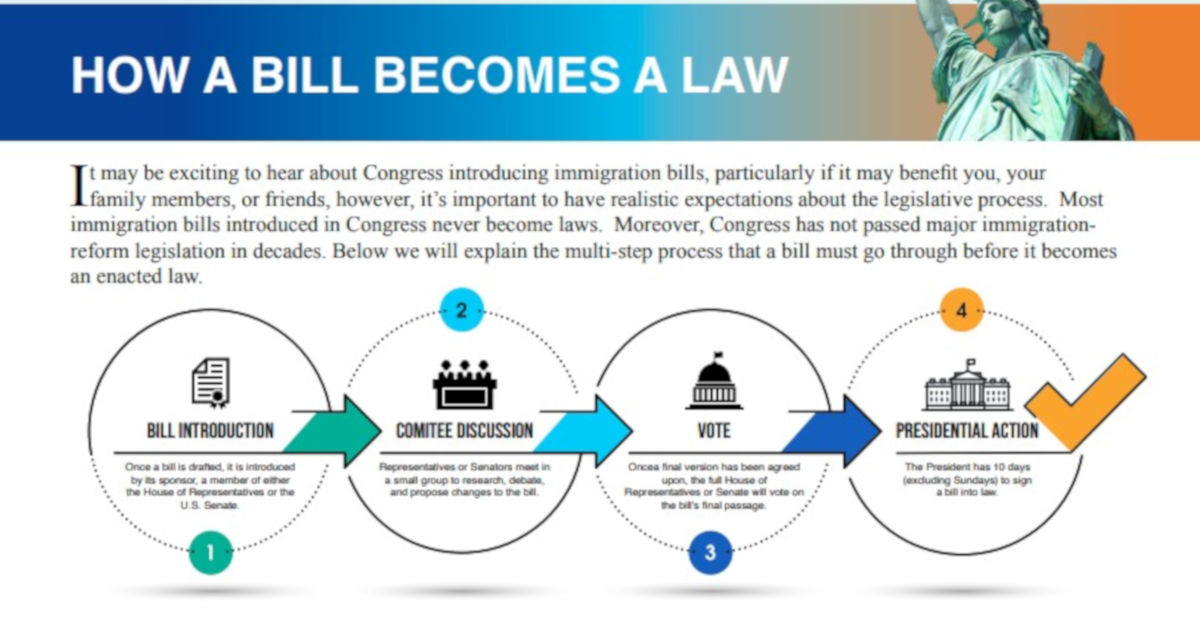


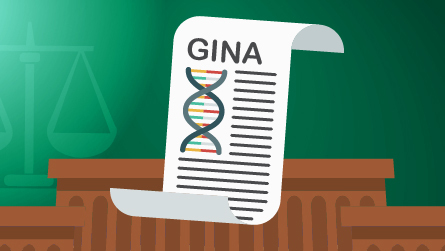







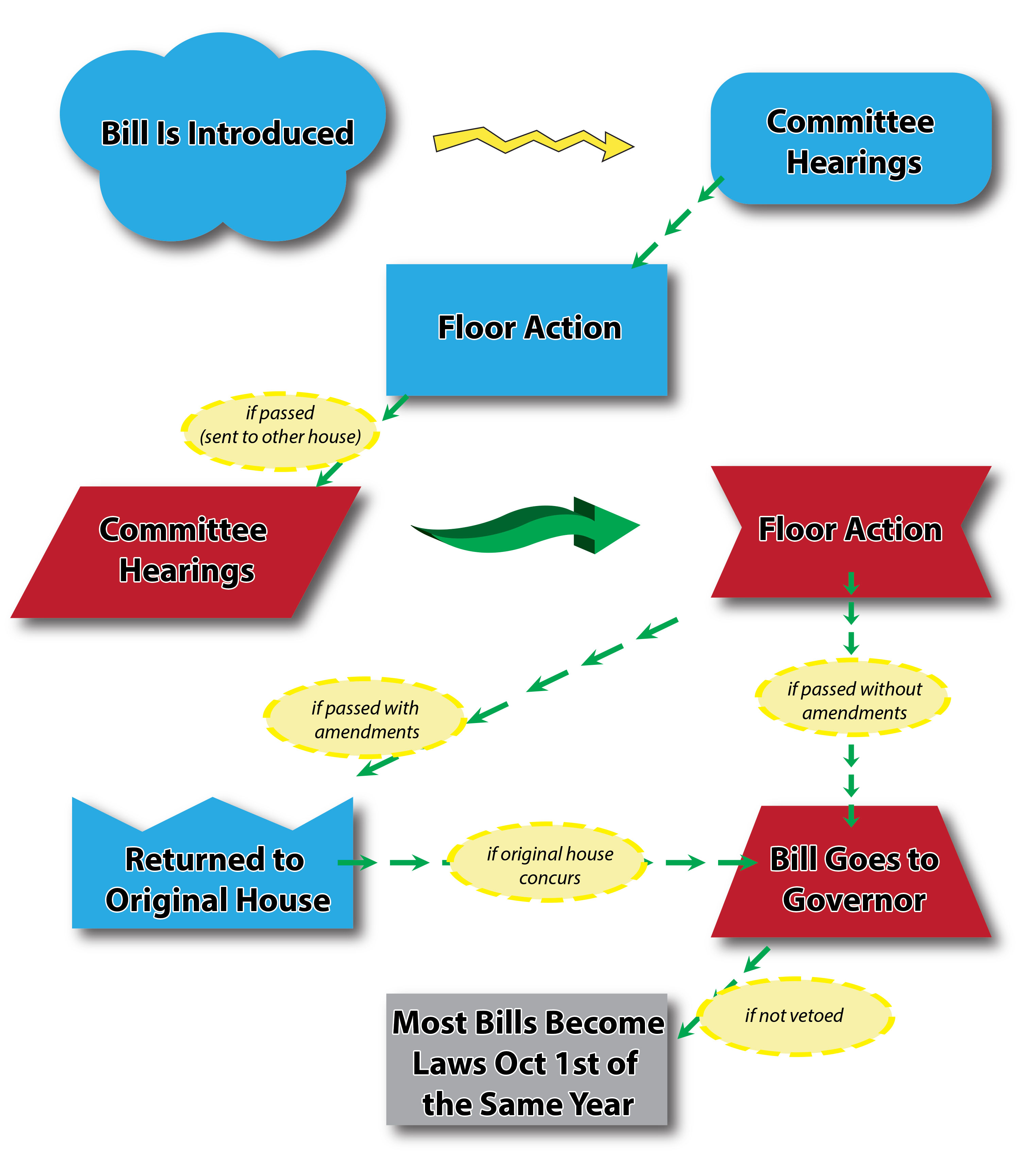
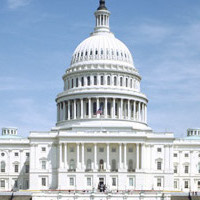

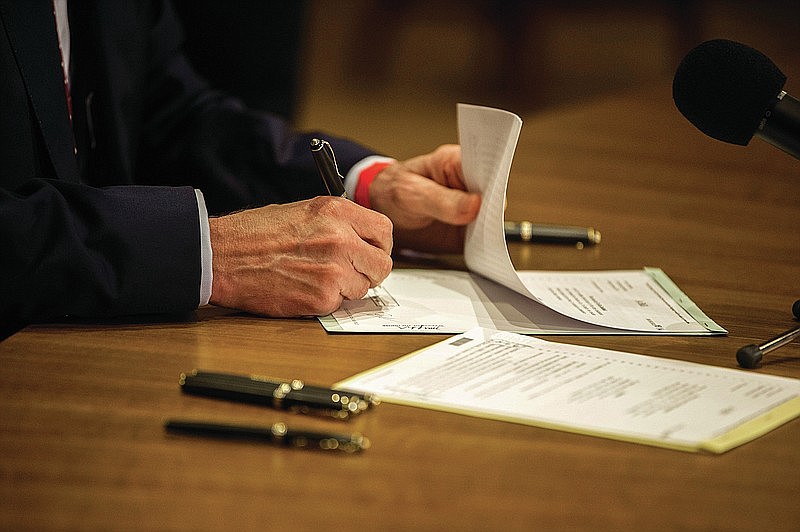

![How a Bill Becomes a Law [ushistory.org]](https://www.ushistory.org/gov/images/00022182.jpg)
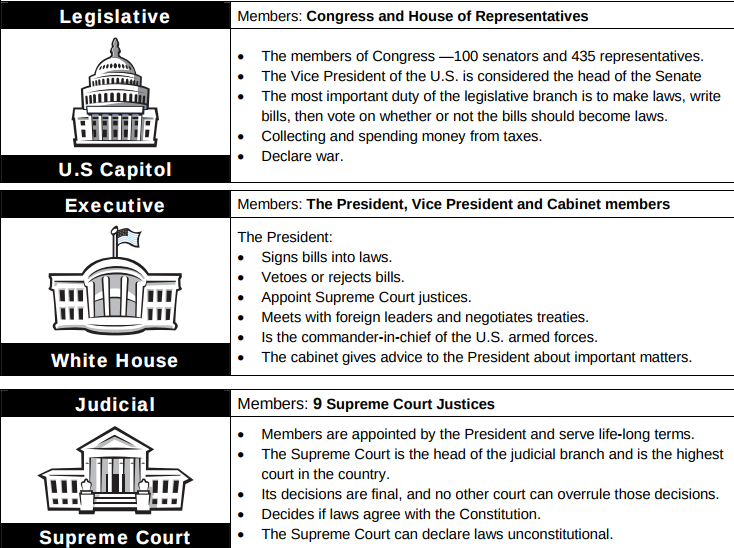

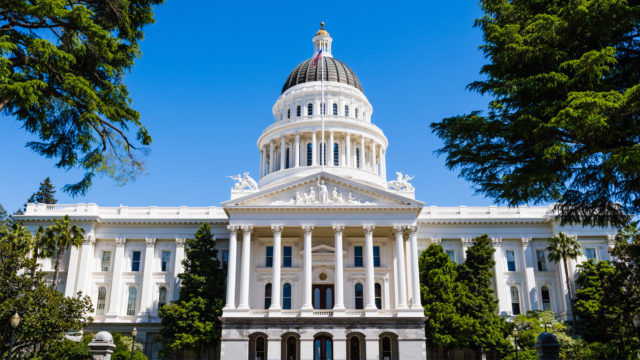
:max_bytes(150000):strip_icc()/166274033-56a9aad65f9b58b7d0fdce7d.jpg)
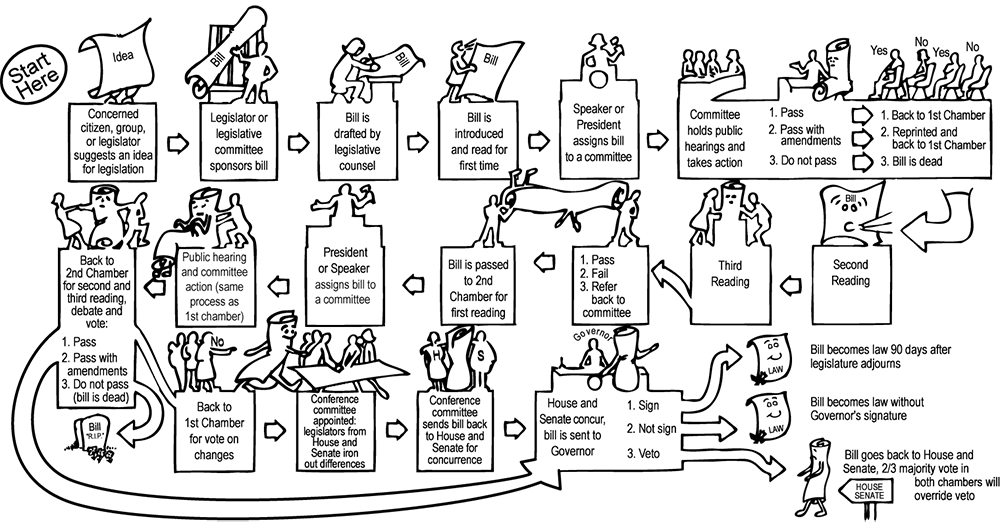

![2015] Yareli Reyes: How Does a Bill Become a Law: american ...](https://239f21.medialib.edu.glogster.com/OdSKfZrqAUYA6ewzzfSi/media/86/860661e19f0bebdb6065282987fb01c6f365f685/adventures-of-bill-flow-chart.png)

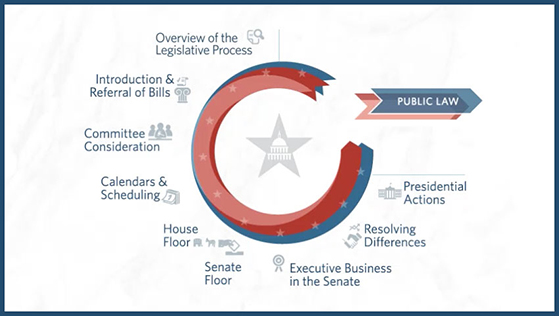


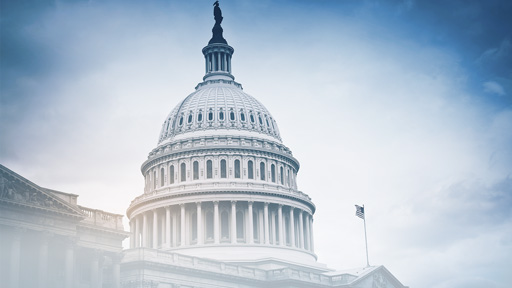
0 Response to "39 who signs bills to become laws"
Post a Comment